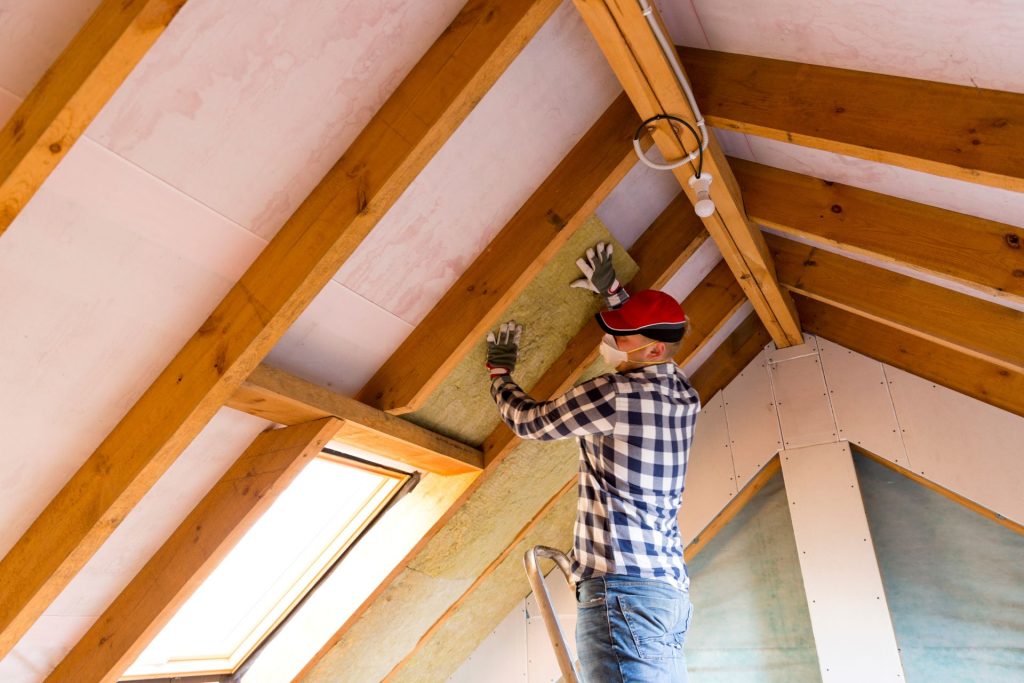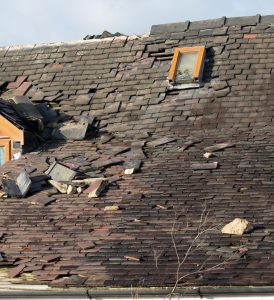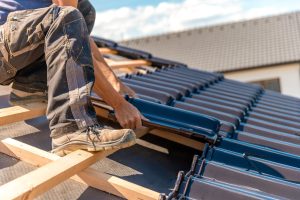Proper insulation is a critical aspect of maintaining an energy-efficient and comfortable home. While many homeowners focus on the visible elements of their roofs, such as shingles and gutters, the importance of roof insulation cannot be overstated.
In this blog post, we will explore the benefits of roof insulation and why it should be a priority for every homeowner. From reduced energy costs to improved indoor comfort, discover how roof insulation can make a significant difference in your home’s overall efficiency and livability.
The Role of Roof Insulation in Energy Efficiency:
Proper insulation plays a vital role in improving the energy efficiency of your home. When it comes to your roof, insulation works as a barrier that prevents heat loss during the winter and heat gain during the summer.
By effectively controlling the transfer of heat, roof insulation helps maintain a consistent indoor temperature, reducing the need for excessive heating or cooling. This, in turn, translates into significant energy savings and reduced utility bills.
Types of Roof Insulation Materials:
Choosing the right insulation material for your roof is crucial. Fiberglass, cellulose, and spray foam are popular options with their unique benefits. Fiberglass insulation, made from fine glass fibers, is affordable and widely available. It provides excellent thermal performance and can be installed in various roof types.
Cellulose insulation, made from recycled paper products, offers effective thermal protection and has good soundproofing properties. Spray foam insulation, made from a mixture of chemicals, expands and forms an airtight seal, providing superior insulation and preventing air leakage.
Benefits of Proper Roof Insulation:
The benefits of proper roof insulation extend beyond energy efficiency. Adequate insulation also improves indoor comfort by creating a more consistent temperature throughout your home.
It helps eliminate cold spots or drafts near the ceiling, ensuring a cosy and comfortable living environment for you and your family. Additionally, insulation acts as a sound barrier, reducing external noise infiltration and creating a quieter indoor space.
Prevention of Condensation, Mold Growth, and Structural Damage:

Proper roof insulation helps prevent condensation, mold growth, and structural damage. Insulation acts as a barrier, reducing the potential for moisture buildup on the underside of the roof.
This helps protect the integrity of your roof structure and prevents costly damage. By minimising moisture, insulation also mitigates the risk of mold growth, which can be detrimental to your health and the structural integrity of your home.
Energy Efficiency Rebates and Incentives:
In some regions, homeowners may be eligible for energy efficiency rebates and incentives by investing in proper roof insulation. These programs aim to encourage homeowners to improve the energy performance of their homes and reduce their carbon footprint.
Before installing insulation, check with local authorities or energy providers to explore any available incentives or rebates that can help offset the cost of insulation installation.
Understanding Insulation R-Value:
When it comes to insulation, understanding the concept of R-value is essential. R-value is a measure of insulation’s resistance to heat flow. The higher the R-value, the better the insulation’s thermal performance.
Different regions and climates have recommended R-values, so it’s important to consider these guidelines when choosing insulation for your roof. Consulting with a professional roofing contractor is advisable to determine the appropriate R-value for your specific location and climate conditions.
Signs of Inadequate Roof Insulation:
Signs of inadequate roof insulation can manifest in various ways. If you experience frequent temperature fluctuations, with rooms feeling too hot in summer or too cold in winter, it may indicate insufficient insulation. High energy bills, particularly during extreme weather conditions, can also be a sign that your roof insulation is not effectively preventing heat loss or gain. If you notice these signs, it’s crucial to address insulation issues promptly to avoid further energy waste and discomfort.
Conclusion
Installing roof insulation should be done by a professional roofing contractor. They have the expertise and knowledge to ensure proper installation, achieving the desired R-value and maximising insulation effectiveness.
Regular inspections of your insulation and overall roof condition are recommended to maintain its performance over time. Addressing any insulation issues or damage promptly will help extend the lifespan of your roof and optimise its energy efficiency.
Contact Acorn Roofing today to schedule a professional inspection of your roof insulation.




